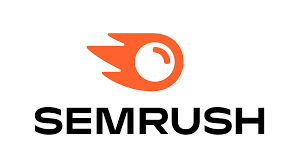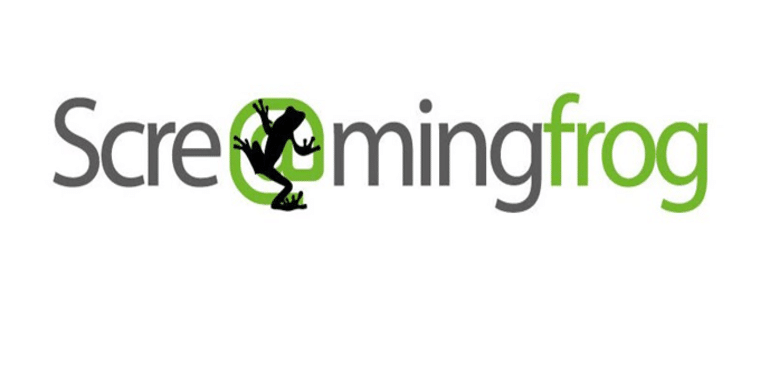(This Article has been revised, edited and added to, by Poulomi Chakraborty.)
In the vast universe of the internet, educational websites offer a beacon of knowledge and information. They guide students, educators, and curious minds through the intricate maze of learning. But with an ever-growing digital landscape, how do these platforms ensure that they remain visible and accessible? Enter the world of Search Engine Optimization (SEO) – the unsung hero that determines a website’s prominence in search engine results. And within SEO’s toolkit, there are several indispensable tools designed specifically to amplify the online presence of educational sites.
The Landscape of SEO for Educational Websites
Educational platforms are distinct; they aren’t e-commerce sites looking to sell products, nor are they news portals that thrive on the latest trends. They are repositories of valuable knowledge that can shape a student’s academic journey. As such, the SEO challenges they face are unique:
- Diverse Audience: From young students to seasoned academicians, educational websites cater to a broad demographic.
- Dynamic Content: These sites continuously update with new courses, research papers, and educational resources.
- High Expectations: Users expect fast, mobile-optimized, and user-friendly experiences.
But how do these websites tackle these challenges? By leveraging the power of specialized SEO tools designed to decode the mysteries of search engine algorithms.
Understanding User Intent in Educational Searches
Start by diving deep into the user intent behind searches related to your educational content. Recognize that students, educators, and parents may have different needs and tailor your SEO strategy accordingly. Use tools like Google’s People Also Ask and Answer the Public to uncover the questions and concerns your target audience has. This understanding will guide you in creating content that addresses these needs directly, enhancing both your relevance and authority in the subject matter.
Leveraging Educational Schema Markup
Schema markup is a powerful tool for educational websites, yet underutilized. By implementing schema for educational Content, Course, and even FAQPage, you can make your content more visible and attractive in search results. This structured data helps search engines understand the context and purpose of your content, potentially leading to rich snippets or enhanced search listings that increase click-through rates.
Building a Community through Content
Developing a sense of community around your educational platform can significantly boost engagement and SEO performance. Encourage user-generated content, such as forums, Q&A sections, and student testimonials. This not only enriches your site with fresh, diverse content but also improves engagement metrics, which are increasingly important for SEO rankings. Platforms like Disqus or native commenting systems can facilitate this interaction.
Strategic Link Building within the Educational Ecosystem
Link building for educational websites should focus on quality and relevance. Forge relationships with educational institutions, academic journals, and industry thought leaders to earn backlinks that are authoritative and relevant. Participate in academic forums, contribute to scholarly articles, and offer valuable resources that naturally garner links. Tools like Ahrefs and BuzzSumo can help you identify potential partners and content gaps in the academic world.
Emphasizing Mobile-First Design and Accessibility
With a significant portion of educational content consumption happening on mobile devices, a mobile-first approach is non-negotiable. Ensure your website’s design is responsive, load times are quick, and navigation is intuitive on smaller screens. Additionally, pay attention to accessibility, making your content easily navigable for people with disabilities. This not only broadens your audience but also aligns with Google’s focus on user experience as a ranking factor.
Advanced Analytics for Deeper Insights
Beyond Google Analytics, consider leveraging advanced analytics tools like Hotjar or Crazy Egg to gain deeper insights into user behavior on your website. Heatmaps, scroll tracking, and video recordings of user sessions can reveal pain points and areas for improvement in your user experience. This qualitative data complements the quantitative data from Google Analytics, providing a comprehensive view of your website’s performance.
SEO for Video and Multimedia Content
As educational platforms increasingly incorporate video and multimedia content, optimizing these assets becomes crucial. Use platforms like YouTube and Vimeo to host your videos, ensuring they are optimized with descriptive titles, detailed descriptions, and relevant tags. Embed these videos on your site and consider creating video transcripts to enhance accessibility and provide additional content for indexing.
Continuous Learning and SEO Experimentation
The SEO landscape is perpetually evolving, especially in the education sector. Stay informed about the latest trends and algorithm updates by following industry leaders and participating in SEO forums. Experiment with new strategies, track their performance, and be prepared to pivot based on data-driven insights. Tools like SEMrush and Google Search Console can aid in this ongoing optimization process.
Incorporating these strategies into your SEO plan will not only address the unique challenges faced by educational websites but also capitalize on the distinct opportunities within this sector. By focusing on user intent, leveraging schema markup, building a community, and continuously optimizing based on advanced analytics and trends, educational startups can significantly enhance their online presence and reach their target audiences more effectively.
Google Analytics: Tracking and Reporting
Imagine flying a plane without any instruments. Sounds terrifying, right? In the digital world, navigating your website without understanding your traffic is just as daunting. That’s where Google Analytics comes into play.
Leveraging Learning Management System (LMS) Integration
For educational platforms, integrating GA with your Learning Management System (LMS) can unlock a wealth of data about how users interact with your courses. This integration allows for tracking beyond page views and clicks, diving into engagement metrics like course completion rates, quiz scores, and time spent on each module. By correlating this data with user demographics or traffic sources, you can identify which courses are most effective and which might need improvement.
Advanced Audience Insights through Cohort Analysis
Utilize GA’s Cohort Analysis feature to understand the behavior of users grouped by specific criteria, such as the date of their first visit or the completion of a certain action (e.g., signing up for a newsletter). This analysis can reveal how different cohorts engage with your site over time, helping you pinpoint the effectiveness of specific marketing campaigns or content strategies. For example, if you notice that users who enrolled in a course after reading a specific blog post have a higher completion rate, you can tailor your content strategy to replicate this success.
Custom Dimensions and Metrics for Deeper Analysis
Google Analytics allows the creation of custom dimensions and metrics that are unique to your educational platform’s needs. For instance, you might track custom dimensions like “Course Category” or “Enrollment Type” and custom metrics like “Assignments Completed.” This level of customization enables you to tailor your analytics to the specificities of your educational content and user interactions, providing insights that standard metrics cannot.
Behavioral Flow for Content Optimization
Delve into the Behavior Flow report to visualize the path users take through your website, from the first page they visit to their last. This visualization helps identify where users drop off or where they engage the most, allowing for targeted content optimization. For educational sites, understanding this flow is crucial for optimizing the student journey, from initial interest through to course completion. It can highlight areas where additional content or navigational aids could keep potential students engaged and moving through your educational offerings.
Site Search Tracking to Understand User Intent
Enable Site Search tracking in Google Analytics to gain insight into what users are searching for once they’re on your platform. This feature can reveal gaps in your content or areas where users may be experiencing difficulty finding what they need. By analyzing the search terms and the subsequent actions taken by users, you can adjust your site structure, improve your search functionality, or create content that directly addresses these searched topics.
Enhanced Ecommerce Tracking for Course Sales
For platforms that sell courses or educational materials, GA’s Enhanced Ecommerce tracking provides detailed insights into the purchasing process. Track not just sales, but also course views, additions to cart, and checkout behaviors. Understanding these patterns can help optimize the sales funnel, reduce cart abandonment, and increase conversions. This feature requires some additional setup but can provide invaluable data for optimizing sales strategies.
Setting Up Intelligent Events for Proactive Management
Google Analytics’ Intelligent Events feature can notify you of significant statistical changes in your data, like unexpected drops in traffic or spikes in course enrollment. These automated insights can alert you to both opportunities and issues in real time, enabling a more proactive management of your educational platform. By configuring these alerts based on your specific goals and thresholds, you ensure you’re always informed about the most critical changes impacting your site.
#1. Ahrefs: Dive Deep into Backlink Analysis
Navigating the SEO waters without understanding the web of links that connect websites is like sailing blind in the vast ocean. Ahrefs stands out as one of the most comprehensive tools in this domain.

What Makes Ahrefs Essential?
Backlinks, or external websites linking back to yours, play a crucial role in SEO. They act as endorsements, and having quality backlinks can significantly boost your website’s authority and ranking. For educational websites:
- Gauge Popularity: By examining the number and quality of backlinks, educational platforms can measure their popularity and influence in the academic world.
- Spot Opportunities: Identify potential partnership or guest posting opportunities by analyzing sites that link to similar educational resources.
- Check Health: Ensure that the backlinks are from reputable sources, discarding toxic or low-quality links.
Features Tailored for Educational Platforms
- Competitive Analysis: Compare your backlink profile with competitors, spotting gaps and opportunities.
- Content Explorer: Discover top-performing content in the educational domain, guiding your content strategy.
- Link Intersect: Find out which sites link to your competitors but not to you – potential avenues to explore!
Content Gap Analysis for Curriculum Development
Ahrefs’ Content Gap tool isn’t just for finding missing keywords; it’s a goldmine for identifying potential areas for curriculum development or content expansion. By comparing your educational site to those of competitors, you can identify subject areas and topics they cover that you don’t. This insight is invaluable for developing new courses, tutorials, or articles that fulfill untapped needs in your audience. Strategically expanding your curriculum or content offerings based on these gaps can position your platform as a more comprehensive resource, attracting a broader audience.
Using Ahrefs for Influencer and Partner Outreach
Backlink data from Ahrefs can reveal which influencers and educational content creators are linking to similar sites but not yours. This information is critical for outreach efforts, as partnerships with these influencers can lead to backlinks and guest posting opportunities. Crafting personalized outreach strategies to these influencers, offering them unique value or insights from your educational content, can help forge relationships that enhance your site’s authority and reach within the educational community.
Strategic Backlink Acquisition Through Skyscraper Technique
Utilize Ahrefs to identify high-performing content within your educational niche, then apply the Skyscraper Technique: create better, more comprehensive content on the same topic and reach out to the sites linking to the original piece. Ahrefs makes it easy to find these potential backlink sources and assess their quality. By systematically enhancing your educational content and presenting it as a superior resource, you can not only gain high-quality backlinks but also position your platform as an authority.
Analyzing SERP Volatility for SEO Strategy Adaptation
Ahrefs’ SERP analysis features can provide insights into search result volatility, indicating how stable the top rankings are for your key topics. For educational websites, understanding this volatility can help in strategizing SEO efforts. If certain topics show frequent changes in the top-ranking pages, it may signal an opportunity to break into the rankings with high-quality, well-optimized content. Conversely, stable SERPs might require a different approach, focusing on building domain authority and backlinks over time.
Leveraging Ahrefs for Technical SEO Audits
Beyond backlink analysis, Ahrefs’ Site Audit tool can uncover technical SEO issues that may be hindering your site’s performance. For educational platforms, ensuring a technically sound website is crucial for both user experience and search engine rankings. Regular audits can identify problems like broken links, slow-loading pages, or unoptimized images. Addressing these issues promptly ensures that technical SEO doesn’t become a barrier to your site’s visibility and user engagement.
Optimizing for Featured Snippets and Rich Answers
Ahrefs can help identify opportunities to optimize content for featured snippets and rich answers, which are highly visible in search results. Analyzing the types of questions being asked in your educational niche and the current featured snippets can guide your content strategy to target these high-visibility spots. Creating content specifically designed to answer these questions, formatted in a way that’s conducive to being picked up as a featured snippet (e.g., concise answers, bullet points), can drive significant traffic to your site.
Tracking and Responding to Competitor Strategies
Use Ahrefs to keep an eye on competitors’ SEO strategies, including their backlink acquisition tactics, keyword focus, and content updates. By understanding where they’re investing their efforts, you can anticipate market shifts and adapt your strategy accordingly. For example, if a competitor starts targeting a new segment within the educational market, it may be an indication of an emerging trend or niche worth exploring.
Implementing these advanced strategies with Ahrefs can significantly enhance the SEO and content strategy for educational platforms. By moving beyond basic backlink analysis to explore content gaps, outreach opportunities, SERP volatility, and technical SEO, educational startups can build a robust online presence that attracts and engages their target audience more effectively.

Related: Check out our free SEO suite

#2. SEMrush: An All-in-One SEO Suite
Every SEO professional’s toolkit is incomplete without SEMrush. It’s like the Swiss Army knife of digital marketing tools, covering everything from keyword research to competitive analysis.

Why SEMrush for Educational Websites?
- Keyword Optimization: Discover the terms students and educators are actively searching for and optimize your content accordingly.
- Site Audit: Get a comprehensive analysis of your website’s health, identifying areas of improvement.
- Track Position: Monitor how your educational platform ranks for specific keywords over time.
Unique Offerings for Educational Domains
- Topic Research Tool: Delve into topics that resonate with your target audience, uncovering hidden content opportunities.
- Keyword Gap Tool: Compare your site’s keyword portfolio against competitors, identifying areas you might be missing out on.
- Organic Traffic Insights: Merge Google Analytics and Search Console data to see what keywords are driving traffic to your site.
Strategic Keyword Research for Curriculum Development
Utilize SEMrush’s Keyword Magic Tool not just for finding keywords but for shaping your educational platform’s curriculum. By identifying trending topics and long-tail keywords with high interest but low competition, you can develop courses, articles, and resources that fill specific market gaps. This approach ensures your content is not only SEO-friendly but also directly addresses the needs and interests of your target audience, increasing engagement and enrollment.
Market Analysis for Identifying New Opportunities
The Market Explorer and Competitive Positioning Map features in SEMrush offer a bird’s-eye view of the educational sector, including market trends, audience demographics, and the competitive landscape. By analyzing these insights, you can identify underserved areas within the education market or discover new niches ripe for expansion. This strategic market analysis can guide your platform’s growth strategy, ensuring you’re investing in areas with the highest potential for return.
Enhancing Content Strategy with Topic Research and Content Audit
Leverage SEMrush’s Topic Research tool to generate content ideas that resonate with your target audience. By entering a keyword or subject area, you’ll receive a wealth of related topics and questions that people are actively searching for. Combine this with a thorough Content Audit of your existing materials to identify content gaps and opportunities for updates or repurposing. This dual approach ensures your content strategy remains fresh, relevant, and aligned with user interests.
Optimizing On-Page SEO for Educational Content
SEMrush’s On-Page SEO Checker provides tailored recommendations for optimizing your website’s content pages. By analyzing factors like keyword usage, readability, and technical SEO elements, you can fine-tune your educational content to rank higher in search results. Implementing these recommendations can significantly improve the visibility and accessibility of your courses and resources, making them more discoverable to students and educators alike.
Building a Robust Backlink Strategy
The Backlink Analytics and Backlink Audit tools within SEMrush enable you to analyze your site’s backlink profile, identify toxic links, and uncover new linking opportunities. For educational websites, cultivating a portfolio of high-quality, educational, and authoritative backlinks is crucial for SEO success. Use these tools to reach out to potential partners for guest posts, collaborative projects, or resource sharing, thereby enhancing your site’s authority and relevance.
Tracking Brand Mentions and Engaging with Your Audience
SEMrush’s Brand Monitoring tool allows you to track mentions of your educational platform across the web. This not only provides insights into your brand’s online reputation but also opportunities to engage with your audience. By responding to mentions, thanking users for positive reviews, or addressing concerns, you can build a strong community around your brand, fostering loyalty and advocacy among your user base.
Utilizing the SEO Writing Assistant for Content Creation
For educational content creators, the SEO Writing Assistant tool offers real-time guidance on SEO best practices, readability, tone of voice, and originality. By ensuring your content meets these criteria, you can improve both its search engine performance and its engagement with readers. This tool is particularly useful for maintaining a consistent and user-friendly approach to content creation across your educational platform.
Incorporating these advanced strategies with SEMrush can transform your educational website’s approach to SEO, content marketing, and competitive analysis. By leveraging the platform’s comprehensive suite of tools, startup founders can gain deep insights into their audience, refine their content strategy, enhance their online visibility, and ultimately drive more meaningful engagement with their educational offerings.
#3. Moz Pro: The Power of Domain Authority
While every SEO tool offers a plethora of metrics, Moz Pro introduced the concept of Domain Authority (DA) – a score (from 1 to 100) that predicts how well a website will rank on search engines.

How Can Educational Websites Leverage DA?
- Benchmarking: Understand where your educational website stands in terms of authority compared to competitors.
- Strategize: Focus on building high-quality backlinks if your DA is low, or work on on-page SEO if your DA is comparatively high.
- Building Partnerships: Approach other educational platforms with a similar DA for collaborations or guest posts.
Noteworthy Features
- Link Explorer: Dive deep into your backlink profile, understanding the quality and source of each link.
- Keyword Explorer: Research and find the best keywords tailored for educational content.
- On-page Grader: Get instant insights on how well an individual page is optimized for its target keyword.
Advanced Keyword Research for Curriculum Planning
Utilize Moz Pro’s Keyword Explorer not only to find keywords but to uncover insights that inform curriculum planning and content development. By analyzing keyword difficulty, search volume, and organic CTR data, you can prioritize topics that have high interest but lower competition. This strategic approach ensures that you develop educational content and courses that fill a genuine need, attracting more students and educators to your platform.
Customizing Your SEO Dashboard for Educational Insights
Moz Pro offers a customizable dashboard that can be tailored to highlight metrics and insights critical to educational websites. Set up your dashboard to monitor DA, page authority, keyword rankings, and crawl issues, but also include modules for tracking specific goals like enrollment conversions, newsletter sign-ups, or resource downloads. This customized view ensures you have a clear picture of your SEO performance and the impact on your educational objectives.
Deep Dive Site Audits to Enhance User Experience
Regular, comprehensive site audits are crucial for maintaining an optimal user experience, a factor that significantly impacts SEO. Use Moz Pro’s Site Crawl to identify and fix issues such as broken links, missing alt tags, duplicate content, and crawl errors. For educational platforms, ensuring a seamless navigation experience and easy access to resources can reduce bounce rates and encourage deeper engagement, factors that positively influence search rankings.
Leveraging Link Explorer for Strategic Partnership Development
The Link Explorer tool within Moz Pro provides extensive data on your backlink profile and that of your competitors. Analyze this data to identify potential partners in the educational sector with whom you could collaborate on content, research, or events. Such partnerships can lead to high-quality backlinks that boost your site’s authority. Additionally, exploring the backlink profiles of high-authority educational sites can reveal directories, forums, or resource lists where getting listed could increase your visibility and credibility.
Optimizing for Featured Snippets and SERP Features
With Moz Pro, you can identify opportunities to rank in featured snippets and other SERP features that increase visibility. Use the SERP Analysis feature to study the kinds of featured snippets and SERP features triggered by your target keywords. Then, optimize your content to target these opportunities, whether it’s by structuring answers to common questions, using bullet points for list-based snippets, or including high-quality images and videos that might be pulled into a featured snippet.
Social Media Tracking for Enhanced Engagement
While Moz Pro is primarily an SEO tool, it also offers features for tracking social media engagement. Monitor mentions of your brand and your content across social platforms to gauge the impact of your social media strategies on your overall online presence. For educational platforms, social media can be a powerful tool to increase engagement, drive traffic, and build community. Integrating these insights with your SEO strategy can provide a more holistic view of your digital marketing efforts.
Continuous Learning with Moz Academy
Leverage the educational resources available through Moz Academy to not only improve your mastery of Moz Pro but also to stay on top of the latest SEO best practices and strategies. Encourage your team to participate in training sessions, which can help in implementing more effective SEO strategies for your educational platform. Moz Academy can be a valuable resource for developing internal expertise in SEO, content marketing, and site optimization.
Incorporating these advanced strategies into your Moz Pro usage can significantly enhance the SEO and online marketing efforts of your educational platform. By focusing on strategic keyword research, customized tracking, comprehensive site audits, strategic partnership development, and continuous learning, educational startups can improve their visibility, engagement, and authority in a competitive digital landscape.
#4. Yoast SEO: Perfecting Your On-Page Game
When it comes to on-page optimization, especially for WordPress users, Yoast SEO stands undisputed. The plugin simplifies the SEO process for beginners while offering in-depth analysis for advanced users.

Why is Yoast SEO Vital for Educational Websites?
- Content Analysis: Assess the readability and SEO-friendliness of content, ensuring it aligns with best practices.
- Meta Optimization: Easily tweak meta titles and descriptions to ensure that search engine listings are compelling and accurate.
- SEO Breadcrumbs: Enhance user navigation and provide search engines with more context about the content’s structure.
Benefits for Educational Domains
- SEO Feedback: Get real-time feedback as you draft content, ensuring articles, research papers, and course descriptions are optimized.
- Schema Implementation: The tool automatically adds schema markup, helping search engines understand the context of educational content.
- Focus Keyword Testing: Test how well you’ve optimized content around target keywords, vital for educational topics with high search volume.
Strategic Use of Yoast SEO for Content Structure Optimization
Yoast SEO’s readability and SEO analysis can guide the structuring of educational content in a way that benefits both the user experience and search engine visibility. Utilize Yoast’s feedback to craft content with clear headings, subheadings, and short paragraphs, ensuring information is easily digestible. For educational content, which can often be complex, this structured approach helps break down information, making it more accessible to students and educators, while also signaling to search engines the organization and quality of the content.
Advanced Focus Keyword Integration
While basic keyword usage is foundational, Yoast SEO allows for advanced focus keyword integration strategies. Beyond the primary keyword, incorporate synonyms and related terms within your content to create a rich, contextually relevant piece. Yoast’s analysis can ensure that you’re not over-optimizing for a particular term, which can be as detrimental as under-optimization. This nuanced approach aligns with modern search algorithms that prioritize topical authority and semantic relevance over simple keyword density.
Tailoring Meta Descriptions for Higher Click-Through Rates
With Yoast SEO, customizing your meta descriptions for each piece of content allows you to directly influence how your pages appear in search results. Use this feature to craft compelling meta descriptions that highlight the unique value of your educational content, incorporating a call-to-action where appropriate. This not only improves visibility in search engine results pages (SERPs) but can significantly increase click-through rates, driving more traffic to your educational platform.
Implementing Schema Markup for Enhanced SERP Features
Yoast SEO facilitates the implementation of schema markup, enabling search engines to better understand the context and content of your pages. For educational websites, utilizing schema for articles, courses, or events can lead to enhanced visibility in SERPs through rich results, such as course ratings, prices, or availability. These rich snippets can make your listings more appealing and informative, thereby attracting more interested learners to your site.
Optimizing for Social Media Sharing
Leverage Yoast SEO’s features for optimizing how your content is shared on social media platforms. By customizing the title, description, and image for social shares within Yoast, you can ensure that your content appears attractive and engaging when shared, leading to increased visibility and traffic from social networks. For educational content, highlighting key insights, findings, or course details in these social snippets can encourage more shares and engagement.
Monitoring and Improving Content Performance with Yoast
Utilize Yoast SEO’s insights to monitor the performance of your content over time. Regularly review Yoast’s SEO and readability scores for your most important pages and posts, and use this data to make iterative improvements. For educational platforms, this might involve updating outdated content, refining focus keywords based on evolving search trends, or enhancing the structure and readability of existing materials.
Integration with Google Search Console
Integrate Yoast SEO with Google Search Console to gain deeper insights into how your content is performing in search. This integration allows you to identify and fix crawl errors reported by Google, submit sitemaps directly from Yoast, and monitor keyword rankings. By addressing these technical and performance-related aspects, you can ensure that your educational website remains in good standing with search engines, further boosting your SEO efforts.
Implementing these advanced Yoast SEO strategies can significantly enhance the on-page SEO of educational platforms. By focusing on content structure optimization, advanced keyword integration, tailored meta descriptions, schema markup, social media optimization, content performance monitoring, and integration with Google Search Console, educational startups can improve their search engine rankings, user engagement, and overall online visibility.
#5. Screaming Frog: Website Crawling Expertise
Screaming Frog’s SEO Spider is a highly revered tool in the SEO community, primarily for its website crawling capabilities.

Significance for Educational Websites
- Deep Dive Analysis: Unearth potential issues buried deep within your website, from broken links to missing meta descriptions.
- Site Structure: Gain insights into the structure of your educational website, essential for large institutions with vast amounts of content.
- Find Redundancies: Identify duplicate pages or content, ensuring unique offerings for students and educators.
Distinct Features
- Visualizations: Generate visual representations of your website’s structure, helping to identify areas of potential restructuring.
- XML Sitemap Generation: Produce sitemaps that can be directly submitted to search engines, making it easier for them to index new educational content.
- Integration Capabilities: Pair with Google Analytics, Search Console, and other platforms to fetch vital data seamlessly.
Comprehensive Technical SEO Audits
Utilize Screaming Frog to conduct in-depth technical SEO audits. Beyond identifying broken links and missing meta descriptions, focus on uncovering deeper issues such as improper use of directives (like noindex or nofollow), incorrect canonical tags, or extensive chain redirects. For educational platforms, ensuring that course pages, resources, and articles are correctly indexed and accessible is paramount. Implement fixes based on Screaming Frog’s audit to improve site health and search engine visibility.
Optimizing Site Architecture for User and Search Engine Navigation
Employ Screaming Frog to analyze and optimize your site’s architecture. Structure is critical for both user experience and search engine crawlers. Use Screaming Frog to visualize your site’s hierarchy and ensure that important content is no more than a few clicks from the homepage. For large educational sites, creating a logical and flat structure helps users and search engines find content efficiently, improving site engagement and crawlability.
Enhancing Page Depth and Internal Linking Strategy
Analyze page depth and internal linking with Screaming Frog to ensure that your most valuable content is easily accessible. Pages buried deep within your site may receive less attention from both users and search engines. Strategically increase internal links to important pages from higher-traffic areas of your site. For educational websites, this might mean linking to popular courses or resources from the homepage or main category pages to boost their visibility and accessibility.
Identifying and Eliminating Duplicate Content
Use Screaming Frog to identify duplicate content issues across your site. Duplicate content can dilute your SEO efforts, confusing search engines about which page to prioritize. This is especially relevant for educational platforms that may list similar courses under different categories. Implement canonical tags or consolidate similar pages to resolve these issues, ensuring that search engines understand the preferred page for indexing.
Mobile Optimization Analysis
Leverage Screaming Frog to audit your site’s mobile usability. With Google’s mobile-first indexing, ensuring your educational platform performs well on mobile devices is critical. Use Screaming Frog to check for mobile-specific issues, such as unplayable content, faulty redirects, or resources that are blocked on mobile. Addressing these issues can significantly improve user experience for mobile users and comply with mobile-first indexing requirements.
Leveraging Custom Extraction for Advanced Insights
Advanced users can leverage Screaming Frog’s custom extraction feature to gather specific data from a webpage using XPath, CSS Path, or regex. This is particularly useful for educational platforms that need to track custom elements like authorship, publication dates of resources, or the presence of specific HTML elements that impact user experience or SEO. These insights can guide content strategy, ensuring your site remains fresh and relevant.
Integrating with Google Analytics and Search Console
Integrate Screaming Frog with Google Analytics and Search Console to enrich your crawl data with user behavior and performance metrics. This allows you to not only identify technical SEO issues but also prioritize fixes based on traffic data, bounce rate, and conversions. For educational sites, understanding how technical issues impact user engagement and course sign-ups can inform more targeted SEO improvements.
Regularly Scheduled Crawls for Ongoing Optimization
Establish a routine schedule for crawling your educational site with Screaming Frog. Regular crawls help identify new SEO issues as your site evolves. This is crucial for educational platforms that frequently update course offerings, publish new content, or adjust their site structure. Consistent monitoring ensures that your site remains optimized for search engines and users alike.
Incorporating these advanced strategies and making full use of Screaming Frog’s capabilities can significantly enhance the SEO foundation of educational websites. By focusing on comprehensive technical audits, site architecture optimization, internal linking, duplicate content resolution, mobile optimization, custom data extraction, integration with analytics platforms, and regular crawling, educational startups can achieve superior search engine visibility and user engagement.
#6. BuzzSumo: Unearthing Content Insights
In the vast world of the internet, knowing what content resonates with your target audience is invaluable. BuzzSumo aids in this discovery process.

Advantages for Educational Platforms
- Content Discovery: Learn what topics are trending in the educational sector.
- Influencer Identification: Recognize key influencers in the educational space to potentially collaborate with.
- Competitive Analysis: Discover what content is performing best for competitors and identify gaps in your own strategy.
Outstanding Offerings
- Content Alerts: Stay updated when specific keywords or topics related to education are mentioned.
- Backlink Checker: Understand who’s linking to your top content and why.
- Question Analyzer: Discover questions students or educators are asking online, providing content inspiration.
Leveraging Trending Topics for Curriculum Development
Use BuzzSumo’s trending topics feature to stay ahead of the curve in curriculum development and content creation. By monitoring what’s currently capturing attention within your educational niche, you can quickly adapt or create courses, articles, and resources that meet these emerging interests. This proactive approach ensures your offerings remain relevant and sought after, potentially attracting a wider audience interested in the latest topics.
Analyzing Competitor Content Performance for Gap Identification
Dive deep into BuzzSumo’s competitor analysis features to understand the content strategy of competing educational platforms. Identify which topics and formats generate the most engagement for them and compare it against your content performance. This analysis can reveal content gaps or opportunities where your platform can excel by addressing underserved topics or by producing superior content in areas where competitors are currently leading.
Content Format Analysis for Engagement Optimization
Utilize BuzzSumo to analyze which content formats (e.g., blog posts, videos, infographics) perform best within your educational niche. Understanding the preferred formats of your target audience allows you to tailor your content production accordingly. For instance, if video content consistently receives higher engagement, investing in high-quality educational videos or webinars could significantly enhance user interaction and retention on your platform.
Influencer Collaboration for Amplified Reach
BuzzSumo’s influencer search tool can identify key influencers and thought leaders within the educational sector. Establishing collaborations or partnerships with these influencers can amplify your content’s reach and credibility. Consider inviting influencers to contribute guest lectures, participate in interviews, or co-create content. Their endorsement can drive traffic, increase enrollments, and enhance the authority of your educational platform.
Monitoring Content Performance for Continuous Improvement
Regularly use BuzzSumo to monitor the performance of your own content across social networks. This ongoing analysis provides insights into what resonates with your audience, guiding future content creation and marketing strategies. Additionally, tracking the lifespan of your content’s popularity can help in identifying the optimal times for publishing new materials or for re-promoting evergreen content.
Utilizing Question Analyzer for Content Ideas
BuzzSumo’s Question Analyzer can mine forums, Q&A sites, and social media for the questions people are asking about your subject area. This tool provides a direct line to the curiosities and challenges of your target audience. Use these insights to create content that addresses these questions, positioning your platform as a helpful authority in your field. This strategy not only improves SEO but also enhances user engagement by directly answering the audience’s needs.
Creating Data-Driven Content Marketing Strategies
Aggregate the insights gathered from BuzzSumo to inform a comprehensive content marketing strategy. By understanding what topics are trending, which formats are preferred, and how competitors are succeeding, you can craft a data-driven approach that aligns with your audience’s preferences and gaps in the market. This strategy should guide not only content creation but also distribution, ensuring that your educational content reaches and impacts your target audience effectively.
Implementing these advanced BuzzSumo strategies can significantly enhance the content strategy of educational websites. By focusing on leveraging trending topics, analyzing competitor performance, optimizing content formats, collaborating with influencers, monitoring content performance, utilizing the Question Analyzer for content ideas, and creating data-driven content marketing strategies, educational startups can achieve greater engagement, visibility, and authority in their niche.
#7. Google Search Console: The Fundamental Tool
Offered by the search giant itself, Google Search Console is a must-have for anyone serious about SEO, especially for educational platforms.

Importance for Educational Websites
- Indexing Status: Ensure all critical pages, like course descriptions or research papers, are indexed by Google.
- Organic Search Performance: Track how your content is performing in Google’s organic search, vital for attracting prospective students or educators.
- Mobile Usability: With many students accessing educational resources via mobile, ensuring mobile-friendliness is critical.
Key Functionalities
- Coverage Reports: Identify pages on your site that may have indexing issues and fix them promptly.
- URL Inspection Tool: Dive deep into the indexing status, optimization, and more for any URL on your educational domain.
- Enhancements: Understand aspects like mobile usability, AMP validation, or structured data implementation for your website.
Utilizing Search Analytics for Content Optimization
Dive deeper into GSC’s Search Analytics to understand how your content performs in search queries. Beyond tracking clicks and impressions, analyze the click-through rate (CTR) and position for specific keywords. For educational websites, this can identify which courses or resources are performing well and which may need improvement in terms of content quality, keyword optimization, or meta descriptions. Use this data to refine your content strategy, focusing on enhancing visibility and engagement for underperforming pages.
Enhancing User Experience with Core Web Vitals
Leverage the Core Web Vitals report in GSC to monitor the user experience on your educational platform. This report provides insights into loading performance, interactivity, and visual stability of your pages. Addressing issues highlighted in this report can significantly improve site speed, responsiveness, and stability, factors that are crucial for keeping students engaged and reducing bounce rates. Prioritize fixes based on the impact on user experience and search rankings.
Improving Site Structure with the Internal Links Report
Use the Internal Links report in GSC to analyze and optimize your site’s structure. For educational platforms with extensive resources and courses, a well-organized internal linking strategy can enhance navigability and distribute page authority throughout your site. Identify pages with few internal links and consider how you can better integrate them into the structure of your website, potentially increasing their visibility both to users and search engines.
Identifying and Fixing Mobile Usability Issues
With the increasing prevalence of mobile learning, ensuring your educational content is fully accessible and usable on mobile devices is essential. The Mobile Usability report in GSC flags issues that could impact the mobile user experience, such as text that’s too small to read, clickable elements too close together, or content wider than the screen. Address these issues promptly to ensure that students can easily access and engage with your content on any device.
Monitoring and Enhancing Security and Accessibility
Security and accessibility are paramount for educational websites. Use GSC to monitor security issues such as malware or hacking attempts, ensuring your platform remains a safe environment for learners. Additionally, pay attention to any manual actions reported by GSC, which could indicate violations of Google’s guidelines. Rectifying these issues promptly can prevent potential penalties that might affect your site’s search visibility.
Tracking the Indexing Status of New Content
For educational platforms regularly adding new courses, articles, or resources, the Index Coverage report is invaluable. This report shows which pages have been successfully indexed and highlights any issues preventing indexing. Use this information to ensure that all your valuable content is discoverable by search engines. For newly added content, consider using the URL Inspection tool to request indexing directly, speeding up the process of appearing in search results.
Leveraging AMP for Enhanced Mobile Experience
For educational websites featuring news or blog content, implementing Accelerated Mobile Pages (AMP) can significantly improve mobile loading times and user experience. GSC provides reports on AMP implementation, highlighting any errors or issues that need attention. Ensuring your AMP content is error-free can enhance visibility and engagement from mobile users, an increasingly important demographic in the education sector.
Implementing these advanced Google Search Console strategies can significantly improve the SEO performance and user experience of educational websites. By focusing on content optimization, user experience enhancements, site structure improvements, mobile usability, security, content indexing, and leveraging AMP, educational startups can achieve greater visibility, engagement, and authority in their niche.
#8. Ubersuggest: Keyword Discovery Tool
Navigating the vast sea of keywords can be daunting for educational institutions. But with tools like Ubersuggest, the process becomes not only manageable but also incredibly insightful.

Advanced Keyword Strategy for Course Development
Use Ubersuggest’s keyword tool not just for blog content ideas but to inform your course development strategy. By identifying trending topics and high-volume keywords within your educational niche, you can tailor your course offerings to meet current market demands. Analyze the keyword difficulty score to find opportunities where demand is high but competition is low, allowing your educational platform to fill these gaps and attract more students.
Competitor Analysis for Market Positioning
Dive into Ubersuggest’s competitor analysis features to gain insights into how competing educational platforms are performing in search rankings. Identify the keywords they rank for, their top-performing content, and where their backlinks are coming from. This information can help you understand their strengths and weaknesses, guiding you to position your platform more effectively by targeting underserved areas or doubling down on content that’s proven to be popular in your niche.
Content Idea Generation Based on Search Intent
Leverage Ubersuggest’s content ideas feature to generate articles, blog posts, or resource guides that align with your target audience’s search intent. This tool provides a list of popular content for given keywords, including engagement metrics across social platforms. Use these insights to craft content that not only ranks well for targeted keywords but also meets the informational or educational needs of your audience, increasing engagement and shares.
Backlink Data for Strategic Outreach
Utilize Ubersuggest’s backlink data to refine your link-building strategy. Identify where your competitors are getting their high-quality backlinks and target these sources for your outreach efforts. For educational websites, securing backlinks from reputable educational institutions, industry publications, and authoritative blogs can significantly boost your domain authority and search visibility. Use this data to prioritize your outreach and content collaboration efforts.
Monitoring SEO Health and Progress
Regularly use Ubersuggest to monitor the SEO health of your educational website. Track your keyword rankings, overall site traffic from organic search, and the number of backlinks you’ve acquired over time. This ongoing analysis helps you gauge the effectiveness of your SEO strategy, allowing you to make data-driven adjustments. For educational platforms, where content is constantly being updated and added, this monitoring is crucial for ensuring that new content is correctly optimized and performing well.
Local SEO for Educational Institutions
For educational platforms that also operate brick-and-mortar locations or offer localized courses, Ubersuggest’s local keyword research capabilities can be invaluable. Optimize your content and listings for local search queries to attract students in specific geographic areas. This strategy can be particularly effective for tutoring services, local workshops, and community education centers looking to increase their visibility in local search results.
Integrating Ubersuggest Insights with Content Marketing
Incorporate insights from Ubersuggest into your overall content marketing strategy. Align your content calendar with the keyword trends and content ideas identified through Ubersuggest. Ensure that each piece of content is optimized for both SEO and user engagement, with clear calls to action that guide readers towards enrolling in courses, signing up for newsletters, or engaging with interactive resources.
By implementing these advanced strategies with Ubersuggest, educational websites can significantly enhance their SEO efforts, content relevance, and competitive positioning. Focusing on tailored course development, effective competitor analysis, strategic content creation, targeted backlink outreach, continuous SEO monitoring, local SEO optimization, and integrated content marketing ensures that educational platforms can attract, engage, and convert their target audience more effectively.
#9. GT MEtrix

Prioritizing Speed for Enhanced Learning Experience
Focus on using GTmetrix to identify and prioritize the speed optimizations that will most significantly impact the learning experience on your educational platform. High-performance websites retain users longer, improve engagement rates, and reduce bounce rates—critical factors for educational content where longer engagement is often necessary. Implement GTmetrix’s recommendations for reducing page load times, such as optimizing images, leveraging browser caching, and minimizing redirects.
Utilizing GTmetrix for Mobile Performance Optimization
Given the increasing use of mobile devices for educational purposes, use GTmetrix to specifically analyze and improve the mobile performance of your site. This involves not just looking at speed, but also considering mobile usability aspects such as button sizes, text readability, and responsive design. Implementing these optimizations can significantly improve access and usability for mobile learners, catering to a broader audience.
Analyzing Competitor Website Performance
Leverage GTmetrix to perform competitive analyses by comparing the performance metrics of your site against those of leading competitors in the educational sector. Identify areas where your website outperforms others and areas where improvements are necessary to stay competitive. This analysis can help you prioritize performance optimizations that could give you an edge in search rankings and user experience.
Integrating Performance Metrics with User Experience (UX) Design
Use insights from GTmetrix in conjunction with user experience design principles to create a seamless learning environment. Performance is a key component of UX, and enhancements identified by GTmetrix, such as faster load times and smoother interactive elements, can contribute to a more effective and enjoyable learning experience. Incorporate feedback from actual users to guide these optimizations, ensuring they truly meet the needs of your audience.
Establishing Ongoing Performance Monitoring Practices
Implement a routine of regular performance checks with GTmetrix to monitor your website’s speed and usability over time. This is crucial as you add new content, update courses, or implement new features that could impact site performance. Establishing benchmarks and monitoring for deviations ensures you can react quickly to maintain optimal site performance, essential for keeping your platform competitive and user-friendly.
Leveraging GTmetrix Reports for Stakeholder Communication
For educational startups working with teams or external stakeholders, GTmetrix reports can be invaluable tools for communicating the importance of website performance. Use these reports to highlight the impact of speed and performance on key metrics like user engagement, conversion rates, and SEO rankings. This can help secure buy-in for necessary optimizations and investments in web infrastructure.
Implementing Advanced Features for In-depth Analysis
Explore GTmetrix’s advanced features, such as setting different testing regions, simulating various devices, and using different connection speeds to understand how your website performs under a variety of conditions. This comprehensive analysis can uncover hidden performance issues that might not be apparent in standard tests, providing a deeper insight into global user experiences.
By incorporating these strategies, educational platform founders can leverage GTmetrix not just as a tool for identifying website performance issues, but as a comprehensive solution for improving user experience, engagement, and SEO. Prioritizing website speed and performance through GTmetrix’s detailed analysis and recommendations ensures that educational websites can meet the high expectations of modern learners, leading to improved educational outcomes and platform growth.
Conclusion
Each tool we’ve delved into offers unique advantages. From uncovering the right keywords with Ubersuggest, strategizing content with BuzzSumo, to optimizing performance with GTmetrix, the digital journey of an educational website is filled with possibilities.
Incorporating these tools into your SEO strategy can significantly boost your online presence. While the tools lay the foundation, remember that consistent efforts, periodic evaluations, and adaptability are the keystones of enduring SEO success.
As the digital realm continues to evolve, staying proactive and informed ensures that your educational institution remains at the forefront, illuminating minds and shaping futures.
Read Next:
- Productivity Apps for Entrepreneurs
- Startup Funding in India – An In-Depth Guide
- How to Invest or Set up a Business in India – The Definitive Guide
- How to use Leadpages: An Explainer
- 15 Best AI Marketing Tools to Elevate Your Business Growth






















Comments are closed.